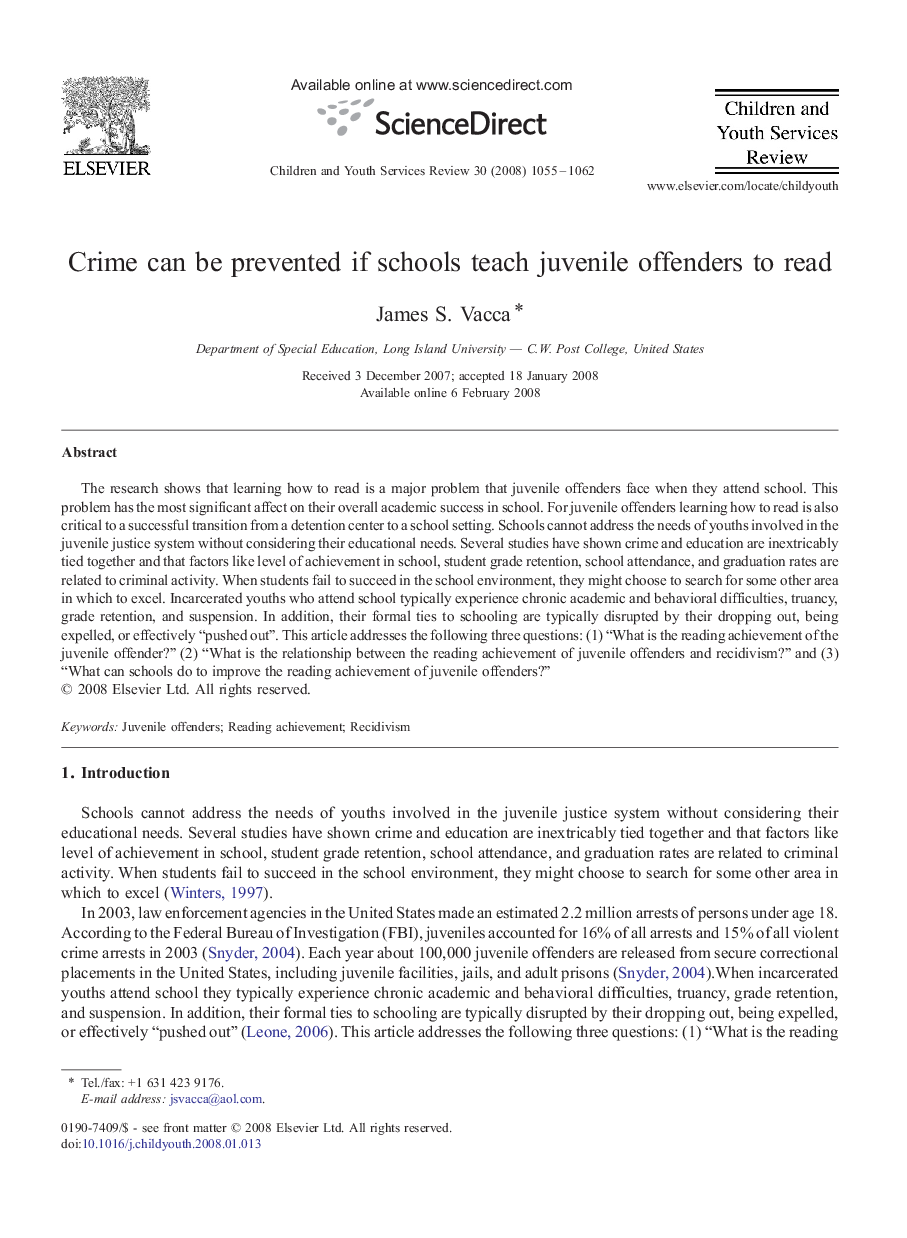| کد مقاله | کد نشریه | سال انتشار | مقاله انگلیسی | نسخه تمام متن |
|---|---|---|---|---|
| 346909 | 617842 | 2008 | 8 صفحه PDF | دانلود رایگان |

The research shows that learning how to read is a major problem that juvenile offenders face when they attend school. This problem has the most significant affect on their overall academic success in school. For juvenile offenders learning how to read is also critical to a successful transition from a detention center to a school setting. Schools cannot address the needs of youths involved in the juvenile justice system without considering their educational needs. Several studies have shown crime and education are inextricably tied together and that factors like level of achievement in school, student grade retention, school attendance, and graduation rates are related to criminal activity. When students fail to succeed in the school environment, they might choose to search for some other area in which to excel. Incarcerated youths who attend school typically experience chronic academic and behavioral difficulties, truancy, grade retention, and suspension. In addition, their formal ties to schooling are typically disrupted by their dropping out, being expelled, or effectively “pushed out”. This article addresses the following three questions: (1) “What is the reading achievement of the juvenile offender?” (2) “What is the relationship between the reading achievement of juvenile offenders and recidivism?” and (3) “What can schools do to improve the reading achievement of juvenile offenders?”
Journal: Children and Youth Services Review - Volume 30, Issue 9, September 2008, Pages 1055–1062